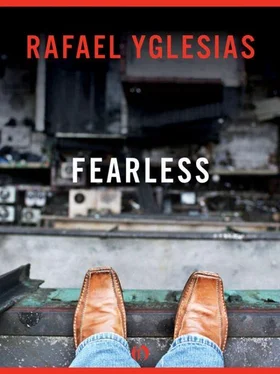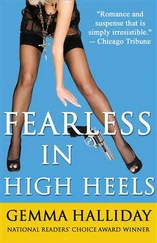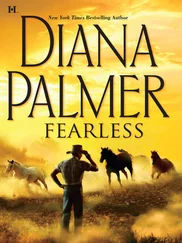Byron got no response. Only the game’s music could be heard for an answer.
Byron resumed after a few moments of silence. “Your dad wanted to own Architron. You know? But he couldn’t afford it. He would be good at it. He only draws small things but they work. I don’t know if my buildings would work.”
“Oh, that’s really great,” Sam whined slowly, a turntable spinning at an incorrect setting. “Buildings that fall down the minute you step into them!”
“Crash!” Jonah said.
“You’re dead!” Sam laughed. He laughed coarsely, almost coughing.
There was another silence. Go, Max, he told himself. There’s nothing but loss and defeat in their youth. You can’t rescue them.
“Your dad is interested in what I do,” Byron said. “He likes me better than he likes you. He’d rather spend time with me. I think your dad loves me more than he loves you.”
Max waited for Jonah to answer. But there was only the game’s melody.
“He does,” Byron said after a while. “Your dad is really more interested in the things I’m good at.”
The computer beeped wildly. Sam exclaimed, “You did it!”
“That’s the highest score of any of my friends!” Jonah said, exhausted triumph in his voice.
“Big deal,” Byron said. “Somebody in the world has a better score.”
Max walked away. He watched his scuffed leather loafers step on the narrow oak boards, bordered by the darker strips that framed each side. His feet had walked on these ubiquitous New York floors for all of his forty-two years. He had crawled on them in Washington Heights as a baby. They had split his chin on the Upper West Side as a toddler. He had raced Matchbox cars that fitted perfectly on their narrow width. He had wet them with grief for his dead father. He had fallen asleep on them in the dark while sneaking to overhear the adults talk of sex in the living room. He had stripped and sanded and polyurethaned and stained and bleached them as an architect. He had carpeted them, he had made love on them, he had tiled them, he had cursed them. How many times had they supported the tedious walk away from defeat?
Debby confronted him as he turned past the living room into the hall leading to the front door. “Max, are you okay?” she said.
He moved into her tall body, leaning the side of his face against hers. It was strange and infuriating that he lived with this elegant and intelligent woman who said she loved him and yet couldn’t salvage the wreck of his life. “I’m going out for a walk.”
“Now?” she whispered in his ear. Her hot breath made him shiver.
“If I don’t I’m going to stab them all to death with Flora’s carving knife.”
“Max,” she sighed and squeezed him. “Don’t leave me alone with them.”
“You can handle them better than I can.”
Debby hugged him, pleading into his eyes. “Before I met you I was lost in the world. I know everybody’s bugging you, everybody wants your comfort. But I really need it. I need you to really be with me.”
He remembered the man she missed, the patient cheerful husband who always understood her nerves, her shyness, her fragility. He could almost see that husband in her eyes. But it had been a performance. How could he tell her that? How could he say: you’ve been married to an imitation?
“You weren’t happy with me.”
“That’s not true. I love you,” Debby said.
“You love me, but you aren’t happy. I couldn’t really comfort you.”
“You don’t have to comfort me. You’re confusing me with Nan. I’m not a widow.”
Max tried to pull away — there was no explaining it, not talk that she could hear.
Debby clung to him. “You should tell Nan to get off your back. She’s making you miserable. She’s making us all miserable.”
“None of this is Nan’s fault,” Max said and he stepped out of his wife’s unenthusiastic arms. “I have to go for a walk.”
“Fine. But we have to talk tonight.”
Harry appeared, moving with his head down, his thick eyebrows lifting and falling as if in time to some inner conversation. “Oh,” he said as he nearly bumped into Max. He looked from Debby to Max and back from Max to Debby. “Am I interrupting?”
“No,” Max said to him. “What are we going to talk about?” he asked his wife.
“Later,” Debby said.
“I’m interrupting,” Harry said and resumed his shuffle down the hall. “I’m just going for another bottle of wine,” he mumbled.
“About what?” Max asked. If it was something truly urgent he had better know right away before answering became impossible.
“Well, for one thing what are you going to be doing now that you shut down the office? You keep saying you don’t know, that you’ll decide later. It’s time to make a decision. I think having no plan is upsetting you.”
“No,” Max said. “It’s upsetting you. I’m going now. Maybe I’ll think up something while I’m out.”
“I hope so,” she said and turned her back on him, walking away in her ex-ballerina’s posture, dignified and disapproving.
Max left the apartment without any more goodbyes. The farewells were worse than staying.
The halls smelled of all the Thanksgiving feasts. Max ignored the elevator, attracted by the interior fire stairs. The games of his childhood took place on a similar set of stairs: hiding behind the banisters and shooting at his friend Gary, from whom he drifted apart when they had to move to the Upper West Side after his father’s death. He couldn’t remember Gary’s face. But he could still hear the sound of Gary’s feet rushing up behind him on the tiled hallway floor firing his water pistol and screeching, “You’re dead, you’re dead, you’re dead!” And his own, as he wheeled and fired back, spraying Gary’s chest. “You missed, you missed, you missed!” What a banal memory. I wasn’t a very smart kid, Max thought, comparing himself to Byron with his ambitions and his awareness of the grown-up world. When did I ever get the idea I was more than an ordinary person? Max wondered. From Ma? Because my father died and that made me unusual?
He sat down on the steps while thinking all those dead-end questions. They weren’t really his own questions; they were asked or provoked by his psychiatrist. His shrink’s medicine used to work so well. You’re entitled, Max. You have a right to be happy. You’re a good son and a good husband and a good father. Good, good, good. I am Max Klein: I am empowered and glowing with self-esteem. I am worthy and deserve to be middle-class in a society where being middle-class is the nearest thing to godliness.
He wondered about his in-laws’ roof. He had always wondered about their roof. It must have a great view, he thought. Not only of the river (the view he knew from his in-laws’ living room window) but also back toward the city itself. The sun, on this cool November day, was already going down, and Max climbed up the two flights, hoping to get on the roof and see the colors spread across New York.
He reached the top and found the roof door’s lock broken. The metal door squealed and tottered at his touch. The city was right there as it opened, glowing pink and red, just as Max had imagined. He stepped out. New York shimmered at him: glistening glass and dignified stone. Here was the criminal who had perverted Max. Not his father’s death, not his mother’s Oedipal transfer of sex into ambition for him, not his own rampaging id. No, Doctor, I didn’t get the idea I should be more than a second-rate, gray-haired balding Jew from your villains. I got it from this beautiful and evil city I love, this floating strip of greedy and defiant buildings.
His feet didn’t want him to be on the spongy tar surface. He had lived afraid of height, skin crawling in retreat if he advanced toward the edge of any precipice. He had almost fainted when taking a cousin of Debby’s up to the observation floor of the World Trade Center even though he had stayed inside, a good ten feet from the barricaded glass windows. He was sixteen stories up now, out in the open.
Читать дальше












